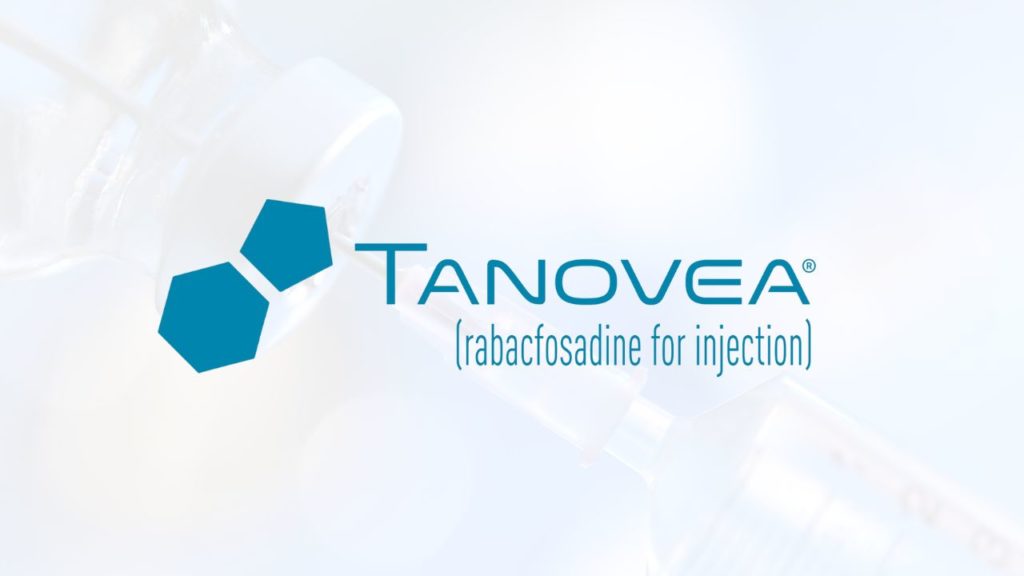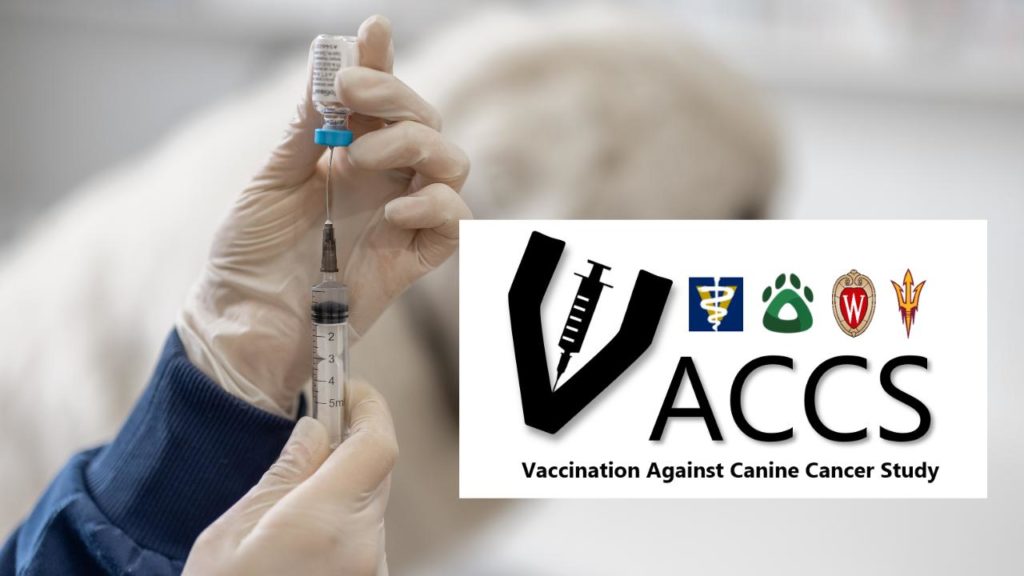The oncologists at the Flint Animal Cancer Center at Colorado State University College of Veterinary Medicine (CSU-CVM) initiated a study to look at adding rabacfosadine (Tanovea) to the gold standard lymphoma treatment protocol of vincristine, cyclophosphamide, doxorubicin, and prednisone (also referred to as the CHOP protocol).
Key Takeaways
- The T-CHOP trial is a study to examine the effects of adding rabacfosadine (Tanovea) to the CHOP protocol for lymphoma treatment in dogs.
- The trial’s preliminary results showed that 93% of the dogs responded to the treatment, with outcomes comparable to the classic CHOP protocol.
- The T-CHOP trial has been closed for enrollment, and the data is still being collected and analyzed.
- The study is being conducted at the Flint Animal Cancer Center at Colorado State University.
- The enrollment for the T-CHOP trial was closed in April 2022.
Update: T-CHOP Trial Still Running, Preliminary Results Released
Preliminary results of the T-CHOP trial were presented at the October 2022 Veterinary Cancer Society conference by Kaitlin Curran, the study’s primary investigator. Adding rabacfosadine (Tanovea) to the CHOP protocol has been effective, with 93% of the participating dogs responding to treatment. Outcomes appear comparable to a classic CHOP protocol based on this study.
The study remains closed for enrollment, but some of the original thirty enrolled participants are still being followed. Once the data has been fully collected and analyzed, a paper will be published. According to Dr. Kristen Weishaar of Colorado State University, the paper will likely be published sometime in 2023.
We will update this article as we learn more. In the meantime, you might also be interested in learning more about clinical trials in general.
What is the T-CHOP looking to discover?
The study of canine cancer and the development of new chemotherapy protocols is a constant endeavor in veterinary medicine. The CHOP protocol is currently the gold standard treatment option for lymphoma in dogs, but researchers and veterinarians are always looking for ways to improve treatment results further.1
The T-CHOP Naïve Canine Lymphoma Study at Colorado State University is a study to examine whether adding another drug to the existing CHOP protocol will improve outcomes.
In 2021, rabacfosadine became the first FDA-approved treatment for lymphoma in dogs. Rabacfosadine (brand name Tanovea®) preferentially targets lymphoid cells and inhibits DNA synthesis via inhibition of DNA polymerases.2 By attacking lymphoid cells and prohibiting their reproduction, rabacfosadine aids in killing lymphoma tumor cells. Rabacfosadine is effective at killing tumor cells with minimal damage to healthy, normal cells.3
Testing the addition of Tanovea to the CHOP protocol is a logical next step to improve outcomes for dogs with lymphoma.
Dr. Douglas Thamm, an oncologist who has been involved with Tanovea since the beginning, explains how it works and how it might best be used in this episode of DOG CANCER ANSWERS.
Selection Criteria for the T-CHOP Trial
The T-CHOP trial, which closed its enrollment of patients in April of 2022, has the following selection criteria:1
- Dogs who have been recently diagnosed with multicentric lymphoma (lymphoma affecting multiple lymph nodes and sometimes the spleen, liver, or bone marrow)
- No prior treatment with chemotherapy, and a one-week washout if being treated with steroids
- Normal liver and kidney function and no underlying diseases
- No history of lung disease, including but not limited to pulmonary fibrosis (a possible side effect of Tanovea use)
- No West Highland White Terriers due to their genetic predisposition to developing pulmonary fibrosis
- Ability to come to CSU for all of the treatment and follow-up visits needed for the clinical trial
Treatment Protocol for the T-CHOP Study
The treatment protocol is:1
- In the hospital patients receive four infusions of rabacfosadine, doxorubicin, and vincristine over the course of 18 weeks
- Cyclophosphamide and prednisone are given by mouth at home
- Weekly visits for bloodwork and/or chemo; bloodwork-only visits can be done with primary care veterinarian
- After chemo is completed, the dogs will need to come back for rechecks once a month, ideally with chest x-rays every other month
The owners are financially responsible for all medications and testing except for the rabacfosadine therapy.1
Where the T-CHOP Study Is Conducted
This study is being performed at the Flint Animal Cancer Center at CSU-CVM.1
How to Join the T-CHOP Trial
Enrollment was closed in April 2022.1
We will update this article as the results are announced.
- T-chop naïve canine lymphoma study. Flint Animal Cancer Center. https://www.csuanimalcancercenter.org/t-chop-naive-canine-lymphoma-study/. Published April 7, 2022. Accessed December 20, 2022.
- Weishaar K, Wright Z, Rosenberg M, Post GS, et al. Multicenter, randomized, double-blinded, placebo-controlled study of rabacfosadine in dogs with lymphoma. J Vet Intern Med. 2022 Jan;36(1):215-226. doi: 10.1111/jvim.16341. Epub 2021 Dec 24. PMID: 34952995; PMCID: PMC8783351.
- Saba, CF, Vickery, KR, Clifford, CA, et al. Rabacfosadine for relapsed canine B-cell lymphoma: Efficacy and adverse event profiles of 2 different doses. Vet Comp Oncol. 2018; 16: E76– E82. https://doi.org/10.1111/vco.12337
- Vail DM, Thamm DH, Reiser H, et al. Assessment of GS-9219 in a pet dog model of non-Hodgkin’s lymphoma. Clin Cancer Res. 2009;15(10):3503-3510.
- Thamm D, Clifford C, Vickery K, Phillips B, Rebhun R, Saba C, et al. Rabacfosadine for canine lymphoma: efficacy and adverse event profiles of two different doses. Paper presented at: Proceedings: Thirty-fifth Annual Meeting. Tysons Corner, VA. USA. October 2015.
- Saba C, Clifford C, Burgess K, et al. Rabacfosadine for naïve canine intermediate to large cell lymphoma: Efficacy and adverse event profile across three prospective clinical trials. Vet Comp Oncol. 2020;1–7. https:// doi.org/10.1111/vco.12605
Tanovea is a trademark of Elanco or its affiliates.
Topics
Did You Find This Helpful? Share It with Your Pack!
Use the buttons to share what you learned on social media, download a PDF, print this out, or email it to your veterinarian.





